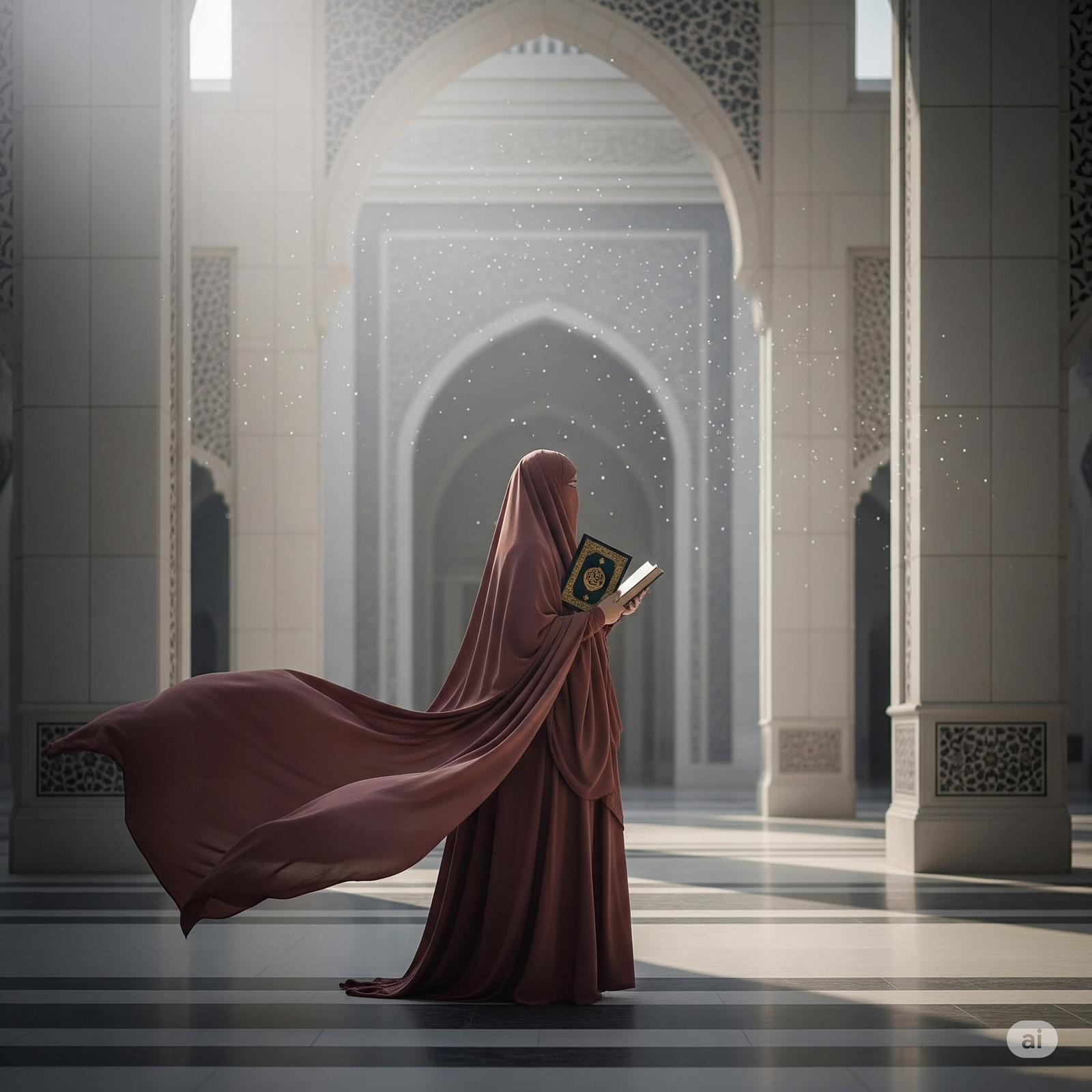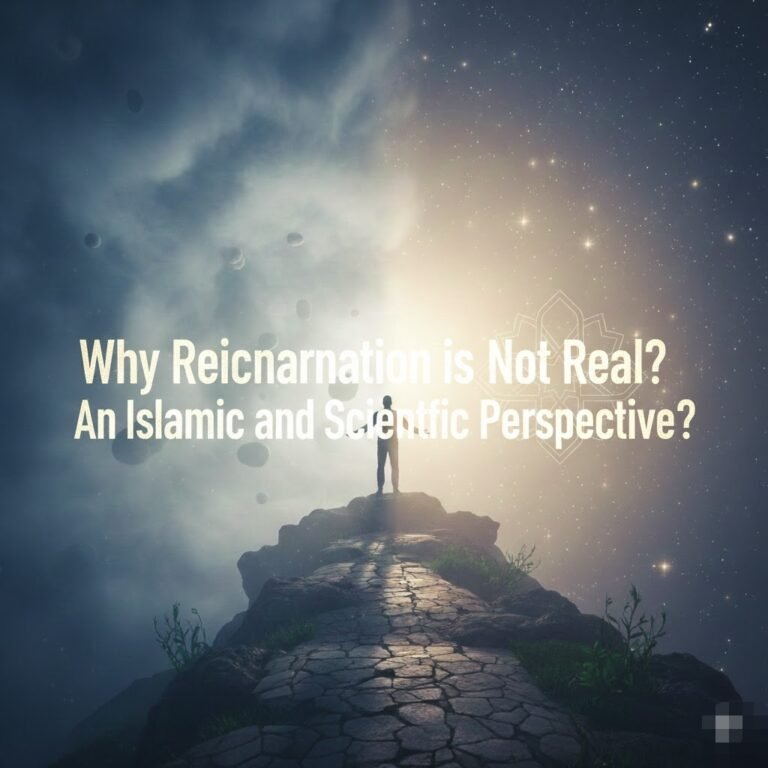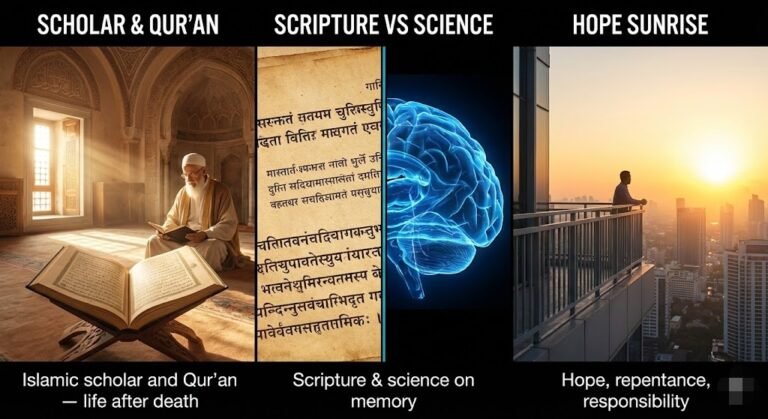Women’s Astonishing Rights: A Divine Revelation in Islam
In the pursuit of justice and equity for all, discussions around women’s rights have often been framed as a modern phenomenon, largely originating from 20th-century movements in the West. Yet, as we delve into the teachings of Islam, we uncover a truth that predates these efforts by centuries. This article, the result of a purely intense and sincere study of authentic Islamic teachings, aims to reveal the pure, solid Truth for God’s sake: women’s liberation was not initiated by human movements, but divinely revealed fourteen centuries ago.
Indeed, the true women’s liberation movement was not begun by women, but was graciously revealed by God to a man in the seventh century: Prophet Muhammad (peace and blessings of God be upon him), the final Messenger of God. The Qur’an, the direct word of God, and the Sunnah (the authentic traditions and practices of the Prophet) stand as the immutable sources from which every Muslim woman derives her comprehensive rights and sacred duties. This unique origin ensures that her dignity, status, and responsibilities are not subject to changing societal norms, but are divinely ordained and eternally safeguarded.
Foundational Human Rights: Equality in Essence
Islam, from its very inception, established an undeniable truth: men and women are fundamentally equal in their humanity and their accountability to God. Fourteen centuries ago, long before modern declarations, Islam proclaimed women equally accountable to God in glorifying and worshipping Him, setting absolutely no limits on her moral or spiritual progress.
“O mankind! Be careful of your duty toward your Lord who created you from a single soul and from it its mate and from them both have spread abroad a multitude of men and women. Be careful of your duty toward God in Whom you claim (your rights) of one another, and towards the wombs (that bore you). Lo! God has been a Watcher over you.”
This profound verse from the very first chapter titled “Women” (An-Nisa) underscores that both genders originate from the same single soul. This equality in essence means that women cannot inherently be evil, for if so, men would share that same intrinsic flaw. Similarly, neither gender can claim superiority based on their nature, as this would contradict the very foundation of their shared origin. This establishes a profound dignity for women, rooted in their creation.
Empowering Civil Rights: Voice, Choice, and Dignity
Islam grants women a robust set of civil rights that ensure their autonomy and participation in society.
Freedom of Belief and Expression
“
{لَآ إِكۡرَاهَ فِي ٱلدِّينِۖ قَد تَّبَيَّنَ ٱلرُّشۡدُ مِنَ ٱلۡغَيِّۚ فَمَن يَكۡفُرۡ بِٱلطَّٰغُوتِ وَيُؤۡمِنۢ بِٱللَّهِ فَقَدِ ٱسۡتَمۡسَكَ بِٱلۡعُرۡوَةِ ٱلۡوُثۡقَىٰ لَا ٱنفِصَامَ لَهَاۗ وَٱللَّهُ سَمِيعٌ عَلِيمٌ}
There shall be no compulsion in [acceptance of] the religion. The right course has become distinct from the wrong. So whoever disbelieves in ṭāghūt[104] and believes in Allāh has grasped the most trustworthy handhold with no break in it. And Allāh is Hearing and Knowing.
“
This fundamental principle extends to women, guaranteeing their freedom to choose their faith without coercion. Beyond this, Islam actively encourages women to voice their opinions and contribute their ideas. History bears witness to numerous instances where women directly approached the Prophet Muhammad (PBUH) with questions and offered their insights on matters of religion, economics, and social affairs, demonstrating their active role in the burgeoning Muslim community.
Autonomy in Marriage and Identity
A Muslim woman possesses the full right to approve or reject a marriage proposal. Her consent is paramount, making forced marriages unequivocally forbidden in Islam. Furthermore, a woman retains her maiden name after marriage, a powerful symbol of her independent identity and lineage, often contrasting with practices in many other cultures, both historically and even in some parts of the world today.
Validity of Testimony
The testimony of a Muslim woman is valid in legal disputes. In fact, in areas where women possess more direct knowledge or familiarity, their evidence is considered conclusive. This recognition of her witness underscores her intellectual capacity and her essential role in upholding justice within society.
Unparalleled Economic Rights: True Financial Independence
One of the most remarkable—and often overlooked—features of women’s rights in Islam is their full economic autonomy. From the earliest days of revelation, Islam granted women financial independence and security in ways that were not only groundbreaking for the 7th century but continue to surpass the standards of many societies even today.
Guardianship and Financial Responsibility: The Qur’an states:
“
{ٱلرِّجَالُ قَوَّٰمُونَ عَلَى ٱلنِّسَآءِ بِمَا فَضَّلَ ٱللَّهُ بَعۡضَهُمۡ عَلَىٰ بَعۡضٖ وَبِمَآ أَنفَقُواْ مِنۡ أَمۡوَٰلِهِمۡۚ فَٱلصَّٰلِحَٰتُ قَٰنِتَٰتٌ حَٰفِظَٰتٞ لِّلۡغَيۡبِ بِمَا حَفِظَ ٱللَّهُۚ وَٱلَّٰتِي تَخَافُونَ نُشُوزَهُنَّ فَعِظُوهُنَّ وَٱهۡجُرُوهُنَّ فِي ٱلۡمَضَاجِعِ وَٱضۡرِبُوهُنَّۖ فَإِنۡ أَطَعۡنَكُمۡ فَلَا تَبۡغُواْ عَلَيۡهِنَّ سَبِيلًاۗ إِنَّ ٱللَّهَ كَانَ عَلِيّٗا كَبِيرٗا}
Men are the caretakers of women, as men have been provisioned by Allah over women and tasked with supporting them financially. And righteous women are devoutly obedient and, when alone, protective of what Allah has entrusted them with. And if you sense ill-conduct from your women, advise them ˹first˺, ˹if they persist,˺ do not share their beds, ˹but if they still persist,˺ then discipline them ˹gently˺. But if they change their ways, do not be unjust to them. Surely Allah is Most High, All-Great.
“
This verse clarifies that the male’s guardianship (Qawamah) is tied directly to his financial responsibility. It implies a duty of providing not just monetary support, but also physical protection and kind, respectful treatment. It is a burden of responsibility, not a badge of superiority, ensuring a woman’s financial security.
A Muslim woman holds the absolute privilege to earn money, to own property, to enter into legal contracts, and to manage all her assets in any righteous way she deems fit. She can run her own business, invest, save, or spend her earnings as she pleases, and no one — not her father, brother, or even her husband — has any claim on her earnings. Her wealth remains entirely her own.
“
وَلَا تَتَمَنَّوْا۟ مَا فَضَّلَ ٱللَّهُ بِهِۦ بَعْضَكُمْ عَلَىٰ بَعْضٍۢ ۚ لِّلرِّجَالِ نَصِيبٌۭ مِّمَّا ٱكْتَسَبُوا۟ ۖ وَلِلنِّسَآءِ نَصِيبٌۭ مِّمَّا ٱكْتَسَبْنَ ۚ وَسْـَٔلُوا۟ ٱللَّهَ مِن فَضْلِهِۦٓ ۗ إِنَّ ٱللَّهَ كَانَ بِكُلِّ شَىْءٍ عَلِيمًۭا
And do not crave what Allah has given some of you over others. Men will be rewarded according to their deeds and women ˹equally˺ according to theirs. Rather, ask Allah for His bounties. Surely Allah has ˹perfect˺ knowledge of all things.
“
This verse explicitly recognizes and protects a woman’s right to independent earnings, emphasizing individual accountability and reward from God’s bounty.
The Sanctity of Marriage: Rights and Responsibilities of a Wife
Marriage in Islam is far more than a social contract; it is a profound divine sign, a cornerstone of society built upon love, mercy, and tranquility.
“
وَمِنْ ءَايَـٰتِهِۦٓ أَنْ خَلَقَ لَكُم مِّنْ أَنفُسِكُمْ أَزْوَٰجًۭا لِّتَسْكُنُوٓا۟ إِلَيْهَا وَجَعَلَ بَيْنَكُم مَّوَدَّةًۭ وَرَحْمَةً ۚ إِنَّ فِى ذَٰلِكَ لَـَٔايَـٰتٍۢ لِّقَوْمٍۢ يَتَفَكَّرُونَ
And one of His signs is that He created for you spouses from among yourselves so that you may find comfort in them. And He has placed between you compassion and mercy. Surely in this are signs for people who reflect.
“
God created men and women with complementary natures, and the Qur’an lays out a comprehensive system to ensure harmonious interaction within the sacred bond of marriage. The relationship is beautifully described:
“…Your spouses are a garment for you as you are for them…”
Just as clothing provides protection, conceals flaws, and beautifies the wearer, spouses are meant to protect each other, cover each other’s shortcomings, and complement each other’s strengths, fostering love and security.
Inviolable Rights of a Wife:
- Mahr (Dowry): A wife’s primary right is to receive `Mahr`, a mandatory gift from the husband, which is a fundamental part of the marriage contract and essential for its legality. This is hers to keep and use as she pleases, reinforcing her financial independence.
- Maintenance and Provision: Irrespective of her own wealth, a husband is obligated to provide his wife with food, shelter, and clothing according to his means. This is a fundamental responsibility, ensuring her comfort and security. However, this is balanced; she is not entitled to make unreasonable demands that exceed his capability. The Qur’an states:
“
لِيُنفِقْ ذُو سَعَةٍۢ مِّن سَعَتِهِۦ ۖ وَمَن قُدِرَ عَلَيْهِ رِزْقُهُۥ فَلْيُنفِقْ مِمَّآ ءَاتَىٰهُ ٱللَّهُ ۚ لَا يُكَلِّفُ ٱللَّهُ نَفْسًا إِلَّا مَآ ءَاتَىٰهَا ۚ سَيَجْعَلُ ٱللَّهُ بَعْدَ عُسْرٍۢ يُسْرًۭا
Let the man of wealth provide according to his means. As for the one with limited resources, let him provide according to whatever Allah has given him. Allah does not require of any soul beyond what He has given it. After hardship, Allah will bring about ease.
“
- Kind and Respectful Treatment: Beyond material needs, a wife has the profound right to be treated with kindness, respect, and compassion. The Prophet Muhammad (PBUH) beautifully articulated this:
“The most perfect believers are the best in conduct. And the best of you are those who are the best to their wives.”
This emphasizes that a man’s character is perfected through his treatment of his wife, highlighting the high esteem in which wives are held in Islam.
- Companionship and Fulfillment: Marriage is designed to fulfill the human needs for companionship and intimacy for both men and women. Islam recognizes these natural needs, and spouses have a right to mutual satisfaction within the bounds of marriage.
Complementary Duties of a Wife:
With rights come responsibilities, and a wife’s duties are vital for the harmony and stability of the marital union. These are not burdens, but complementary roles that ensure a balanced and loving home.
“…And righteous women are devoutly obedient and, when alone, protective of what Allah has entrusted them with…”
- Protecting Marital Privacy and Secrets: A wife is entrusted with guarding her husband’s secrets and protecting the sanctity of their marital privacy. This includes not disclosing intimate matters or personal faults that could dishonor him, just as he is expected to safeguard her honor.
- Safeguarding Property and Home: She is responsible for safeguarding her husband’s property and managing the household affairs wisely, preventing loss, theft, or waste to the best of her ability. She should not permit entry to anyone her husband dislikes or incur expenses without his approval, maintaining the security and integrity of their home.
- Cooperation and Coordination: A Muslim woman is encouraged to cooperate and coordinate with her husband. However, this cooperation is bound by divine guidance; she should not fulfill requests if they entail disobedience to God. A husband, in turn, is enjoined to be considerate of his wife’s needs and happiness, fostering a partnership built on mutual respect and righteousness.
Conclusion: Islam, A Complete Way of Life
The rights and duties afforded to women in Islam, established 1400 years ago, are truly astonishing and, in many aspects, surpass what many women experience even in contemporary societies. These provisions are not arbitrary but are divinely ordained by God to maintain balance and harmony within society. What might seem distinct or perhaps even misunderstood in one aspect is often compensated for or clarified comprehensively elsewhere within Islam’s holistic framework.
“
وَمَا كَانَ لِمُؤْمِنٍۢ وَلَا مُؤْمِنَةٍ إِذَا قَضَى ٱللَّهُ وَرَسُولُهُۥٓ أَمْرًا أَن يَكُونَ لَهُمُ ٱلْخِيَرَةُ مِنْ أَمْرِهِمْ ۗ وَمَن يَعْصِ ٱللَّهَ وَرَسُولَهُۥ فَقَدْ ضَلَّ ضَلَـٰلًۭا مُّبِينًۭا
It is not for a believing man or woman—when Allah and His Messenger decree a matter—to have any other choice in that matter. Indeed, whoever disobeys Allah and His Messenger has clearly gone ˹far˺ astray.
“
This verse reminds us that the divine decree, once established, is for our ultimate good. Islam is not merely a religion; it is a complete and perfect way of life, offering comprehensive guidance for every aspect of human existence. We invite you to explore these truths with an open heart and mind, for in understanding them, one finds profound wisdom, justice, and tranquility.




